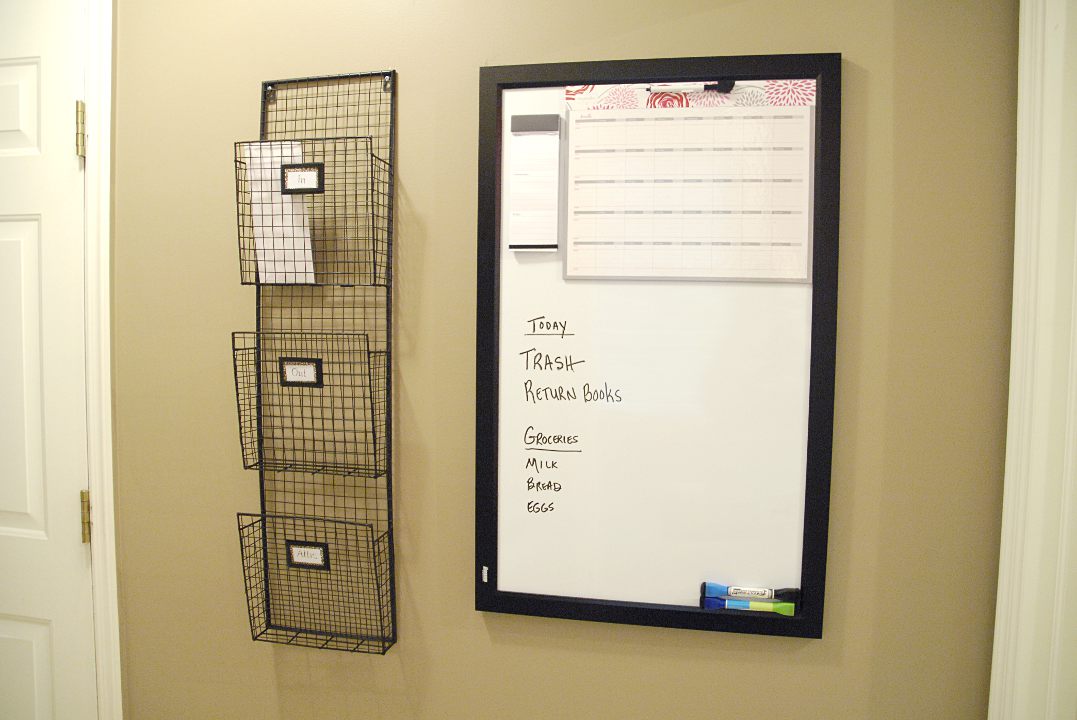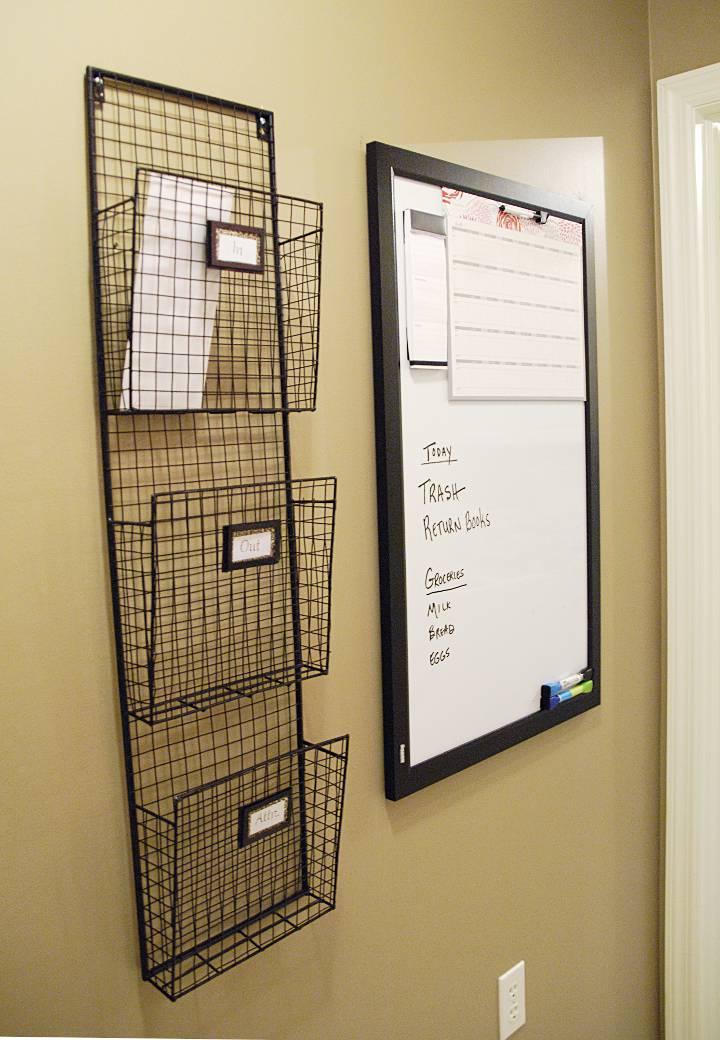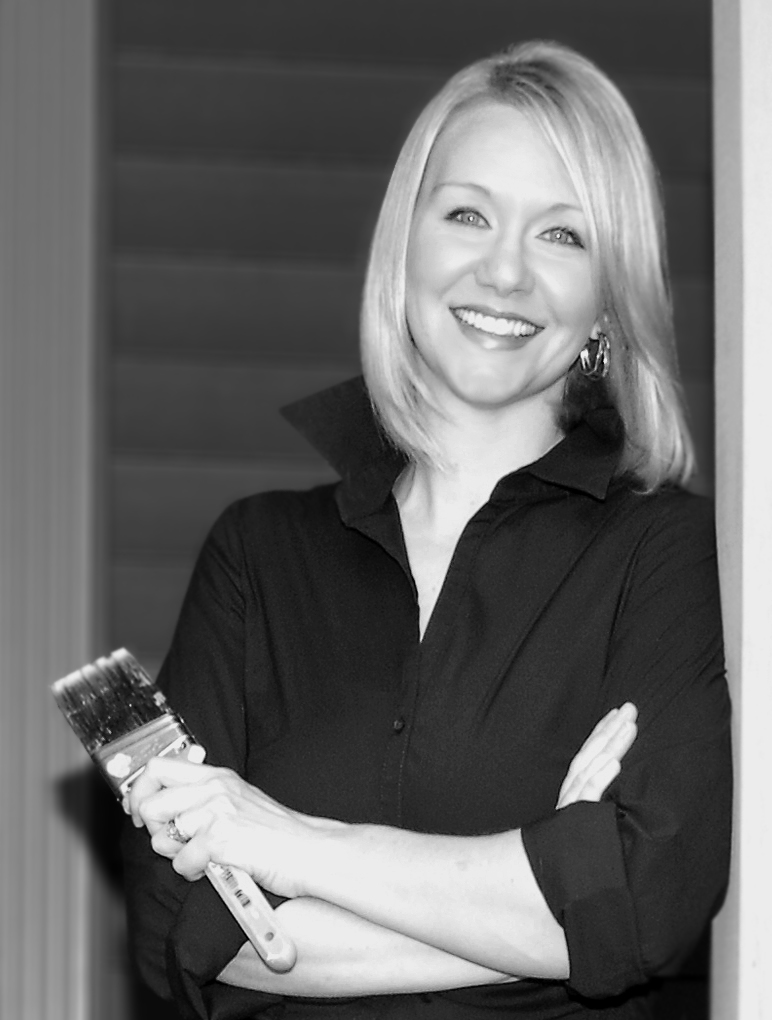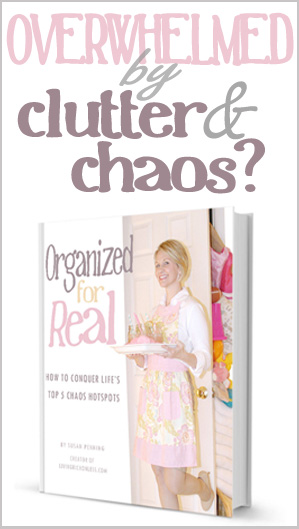How to organize your finances
Today I’m wrapping up my monthly series on the TOP FOUR, MOST IMPORTANT AREAS OF ORGANIZATION. So far, I’ve covered how to organize your mind, how to organize your schedule and how to organize your food.
This next topic is probably not one of the most exciting, but it is definitely one of the most important: HOW TO ORGANIZE YOUR FINANCES.
Before I dive into the nitty-gritty details of how the hubs and I took control of our finances, let me share my strategy for staying on top of the paperwork that floods into my home (which includes bills, of course).
The system I use for keeping control of our incoming mail is pretty simple. I have a mail center that I use to sort everything as soon as it comes in the door.
If it’s junk mail, it goes straight into the recycle bin or shredder. If it’s something I want to look at later, but is not vitally important, such as a magazine or catalog, it goes in the “In” slot temporarily.
If it is something that needs attention (such as a bill or important document), it goes in the “Attn.” slot.
AT LEAST ONCE A WEEK, I take time to deal with all the items in the “Attn.” slot. This prevents me from paying bills late, forgetting to turn in important paperwork on time, etc.
The last slot, “Out,” is for items that need mailed or sent to work with the hubs or to school with Tiny.
The magnetic white board beside my mail slot serves as a great tool for displaying my monthly calendar, writing down urgent tasks for our family, and hanging reminders about important upcoming events.
Sorting the mail right away and taking care of my “Attn.” items weekly is the cornerstone of my simple system. My day planner is another vital tool that helps keep my life in order.
With regard to incoming bills, our family has set up most of our bills to be paid automatically out of our checking account. This dramatically cuts down on the amount of bills we get in the mail.
Money management
Of course, my system of organizing a mail center and setting up automatic bill payments works well unless you are in a “more month at the end of the money” situation.
What if you have to constantly stagger bill payments to avoid overdrawing your accounts? What if you’re “robbing Peter to pay Paul” and using credit cards or money designated for other needs just to get through the weeks or months?
It’s no secret that juggling bills and worrying about whether or not you’ll have enough to make it until payday is a frustrating, anxiety-inducing way to live.
While I don’t have any magic beans or get-out-of-debt-free cards to give away here, I can share with you the financial strategy that has worked for our family and how we’ve managed to become completely debt free (except the house), be generous to others and put a good chunk into savings and retirement accounts.
Our story
When my husband and I got married nearly 13 years ago, we were broke as a joke, with nothing in savings and carrying (together) about $35,000 in school loans, about $6,000 in credit card debt and a $6,000 car loan. Of course, we could have accrued a ton more in school and auto loans, but we applied for scholarships and worked odd jobs to keep the amounts lower.
At the time we married, I think together we were earning a little more than $20,000 a year total. Any extra money we had left over after the tuna and Ramen noodles went to pay down debt.
To save money, I hand-sewed curtains from scrap fabric for our $275/month apartment and we either thrifted or bought on extreme clearance EVERYTHING we needed for our new life together. No big-screen TVs, expensive gaming systems or designer sheets and towels for us.
Then we prayed hard. We prayed that God would help us pay off our debt as quickly as possible and we prayed that we would be smart with our money so we could be more generous. And we tithed, meaning we gave a tenth of all our earnings back to God (mostly in the form of church offerings).
Slowly, the debt whittled down and the earnings increased. Within two years of getting married, God called us both into the Air Force full-time and we were able to take advantage of the military’s college loan repayment program, which allowed us to pay off $15,000 of loans in one fell swoop. Nice! Then we took advantage of the military’s tuition assistance program to get our master’s degrees without taking out a single loan. Double nice! This put us on the right track to exponentially increase our future earning potential.
When we left the military, our total debt consisted of one car loan and a mortgage. Later, we attended Dave Ramsey’s Financial Peace University, which solidified our “live debt free” philosophy and motivated us even more to get and stay out of debt. We finished paying off our vehicles and are now left with only the mortgage on our home, which we are working to pay down, too. Although we don’t have a lot of disposable income right now (since we are surviving on basically one income), our quality of life is good.
Our financial philosophy consists of three major pillars (in order of importance):
1. Give. No matter how much or how little we make, we give at least a tenth back to God, the giver of all things! I truly believe this is the main reason we have never had to worry about our needs being supplied.
Proverbs 11:24-25
There is one who scatters, and yet increases all the more, and there is one who withholds what is justly due, and yet it results only in want. The generous man will be prosperous, and he who waters will himself be watered.Malachi 3:10
“Bring the whole tithe into the storehouse, so that there may be food in My house, and test Me now in this,” says the Lord of hosts, “if I will not open for you the windows of heaven and pour out for you a blessing until it overflows.Luke 6:38
Give, and it will be given to you. They will pour into your lap a good measure, pressed down, shaken together, and running over. For by your standard of measure it will be measured to you in return.
2. Save. We followed Dave’s plan and have created an emergency fund. We have at least three-six months of living expenses in our savings account. And we actively fund retirement accounts. Having this little cushion really helps us sleep well at night knowing we can handle financial emergencies that may arise. We also carry health and term life insurance (which are affordable because I am a member of the Air National Guard).
3. Spend. Whatever money is left over after the giving and the saving is used to fund our lives. I use coupons for almost everything (yep, I’m one of those weirdos in the store with the big coupon binder), and I’m always on the lookout for great deals on products and services. And if you have been following this blog for very long, you know I DIY pretty much everything to save money on labor costs. I’m also not afraid of thrift stores, yard sales and auctions. Shopping this way allows our family to enjoy nice things and still stay within our budget.
I realize our story is unique and we have certainly had our share of help along the way (from God and the military). But the honest-to-goodness truth is that we have had to make some serious sacrifices to get where we are today. There are no short-cuts, no get-rich-quick methods. But it has been worth the journey. Forget Mastercard: The peace and freedom that comes from having your finances under control is what is priceless!
Below are some great resources to help you on your own journey to financial freedom:
Where are you on the road to financial peace?








